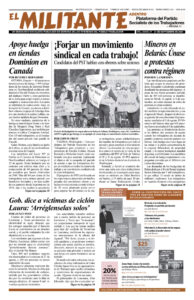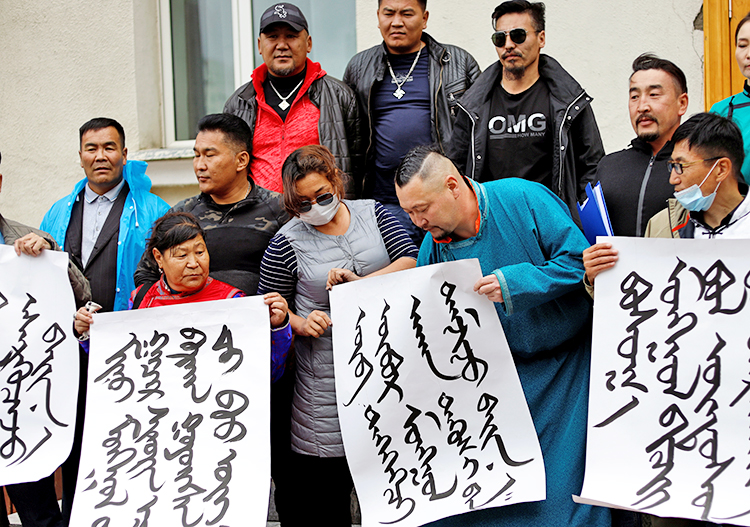Thousands of parents, students, teachers, herders and other toilers protested at the beginning of September in cities across Inner Mongolia, an autonomous region of grassland and desert in northeast China. They were challenging moves by Beijing to teach key school courses in Mandarin Chinese, not their native Mongolian, as has been the case for decades. They see this attack as similar to that imposed against Uighurs, Tibetans and other non-Han peoples. Above, protesters in Ulaanbaatar, capital of neighboring Mongolia proper, an independent country, hold placards in Mongolian in solidarity Aug. 31.
Many parents and students only found out after school started that primary and secondary school courses in core subjects — language and literature, morality and law, and history — would no longer be taught in Mongolian or have textbooks in that language.
In online videos, rows of uniformed schoolchildren could be seen protesting, chanting “Our mother language is Mongolian!” and “We are Mongolian until death!” Parents faced riot police as they went to take their children out of school. The school boycott ended after several days as parents were threatened with loss of their state jobs.
The Chinese authorities published wanted lists of protesters they had identified from pictures taken by surveillance cameras and arrested hundreds.
“Almost every Mongolian is opposed to the revised curriculum,” Hu, a 32-year-old herder from the Xilingol region in Inner Mongolia, told Agence France-Presse.
Mongolian has long been recognized as an official language alongside Chinese in this strategic region, which borders Mongolia and Russia. With the government encouraging relocation of Han Chinese to Inner Mongolia, the 6 million Mongols there are now less than a fifth of the population.
Beijing has fanned Han nationalism and restricted minority languages in the name of “ethnic unity” and “ideological security.” More than a million Uighurs in Xinjiang, an autonomous region west of Inner Mongolia, have been forcibly detained in “reeducation” camps.


